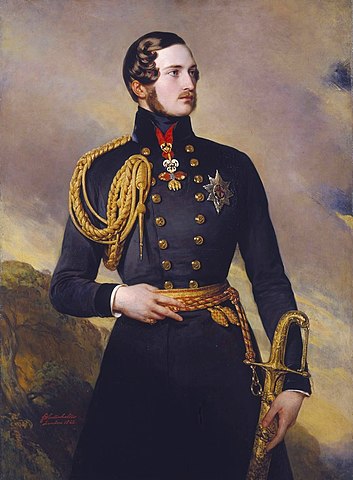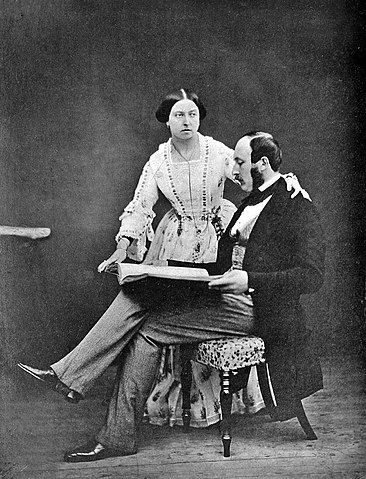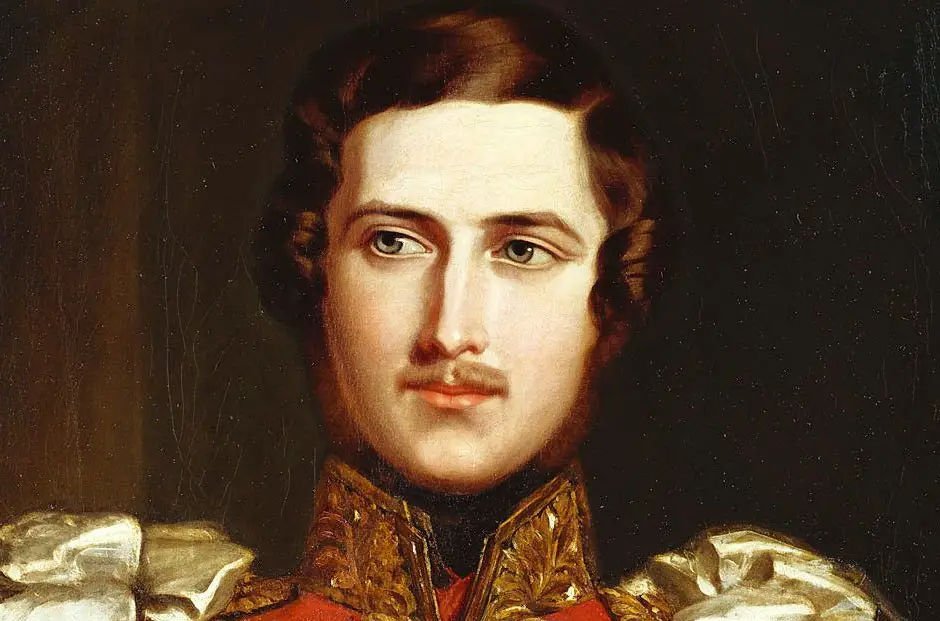 ueen Victoria is one of Britain’s most well-known monarchs. She reigned for over sixty years, gave birth to nine children, and became the symbol of the British Empire. But her privileged lifestyle was far from perfect. She faced many difficulties throughout her life, the most traumatic of which was the death of her husband, Prince Albert.
ueen Victoria is one of Britain’s most well-known monarchs. She reigned for over sixty years, gave birth to nine children, and became the symbol of the British Empire. But her privileged lifestyle was far from perfect. She faced many difficulties throughout her life, the most traumatic of which was the death of her husband, Prince Albert.
Though most of us with an interest in history are aware of the prince’s untimely passing, the details of this tragic event aren’t common knowledge.
Workaholic
Albert’s own self-discipline was a key aspect of his poor health. He was a workaholic who was obsessed with punctuality, morality, and duty.
Even as a youngster, he was an active individual with an aversion to idleness. Alongside his brother Ernst, Albert learned to hunt, shoot, fence, and ride. At the age of fourteen, he manufactured his own curriculum of study: nine hours a day of history, religion, geography, maths, music, English, and Latin.
This attitude didn’t change over time, and following his marriage to Victoria in February 1840, Albert continued to live a disciplined life. Letter-writing, speech-making, further education, visits abroad, fatherhood, and events management were just some of the activities that filled his crammed timetable.

But given his less-than-ideal health, all this hard work was not wise. Albert was burdened with stomach problems throughout his life. In his later years, he rarely ate luncheon and became increasingly picky about food.
He would eat game, cutlets, potatoes, chicken casseroles, and a special dish known as ‘oeufs à l’allemande’, which consisted of eggs, sugar, wine, and biscuits. But his stomach problems were so severe that he could only eat small quantities.
A royal scandal
Matters weren’t helped by Victoria’s battles with post-natal depression, and her grievances only increased following the death of her mother. This put a greater strain on Albert. His worry led to insomnia, which in turn led to phases of apathy and depression.
In 1861, Albert’s health problems — already exacerbated by his work-obsessed attitude — were hindered yet again by the behavior of his eldest son Edward, the Prince of Wales.

During a military trip to Ireland, Edward spent three nights with Nellie Clifden, the famous actress. This event developed into a royal scandal, and Albert was angered and ashamed by his son’s antics. Edward’s behavior reminded him of other royal scandals, such as George IV’s erotic prints, William IV’s illegitimate children, and the affairs Albert’s own parents had indulged in.
Despite his declining health, Albert refused to neglect his duties. He visited the Royal Military Academy at Sandhurst on the 22nd of November in the midst of torrential rain. He then traveled to Cambridge, determined to confront his son about the recent scandal.
Final days
The father and son reconciled with a walk around Madingley Hall. Though the conversation was beneficial as far as their relationship was concerned, they were accompanied by yet another downpour.
Albert then spent the night in Cambridge, shivering from a combination of cold and back pain. When he eventually returned to Windsor Castle on the 26th of November, he was seriously ill. Albert was so weak he could hardly hold a pen, and by the start of the following month, a doctor had been summoned.
Albert’s nights were burdened by sleeplessness, shaking, and distress. He was soon incapable of taking on nourishment, and fever took hold several days later. But bizarrely enough, the doctors told Victoria not to be concerned. They thought he would pull through.
On the 14th of December, the doctors’ hopes were proven wrong. Albert’s breathing took a turn for the worse, and he died surrounded by his wife and children. Victoria recorded the tragic moment in her diary:
“Two or three long, but perfectly gentle breaths were drawn, the hand clasping mine, & (oh! It turns me sick to write it) all, all was over … I stood up, kissing his dear heavenly forehead & called out in a bitter agonizing cry: ‘Oh, my dear Darling’ & then dropped on my knees in mute, distracted despair, unable to utter a word or shed a tear.”
Typhoid fever?
According to Albert’s death certificate, he died from typhoid fever, a bacterial, water-borne infection caused by poor sanitation. The chill he obtained on his visit to Sandhurst made him susceptible to infection, and he then contracted typhoid at Windsor Castle.
But more recently, historians and medical professionals have questioned this narrative. If Albert had contracted typhoid fever at Windsor Castle, then you would expect others sharing the same water supply to have caught it as well. This wasn’t the case. Albert was the only one.
Though we can never know for sure, it’s more likely that Albert’s typhoid-like symptoms arose from chronic Crohn’s disease (this would explain his stomach issues), which developed into abdominal cancer.
These health issues were then exacerbated by his refusal to stop working, several traumatic life events, and — in the days before his death — poor weather conditions.
Nowadays, Albert’s troubled health would have been diagnosed and treated with proper efficiency. But like many others in the Victorian era, his life was cut unnecessarily short.

Purchase my history quiz book: https://www.amazon.co.uk/dp/B0BLFWPMKL
Contact: jacobwilliamwilkins@gmail.com





